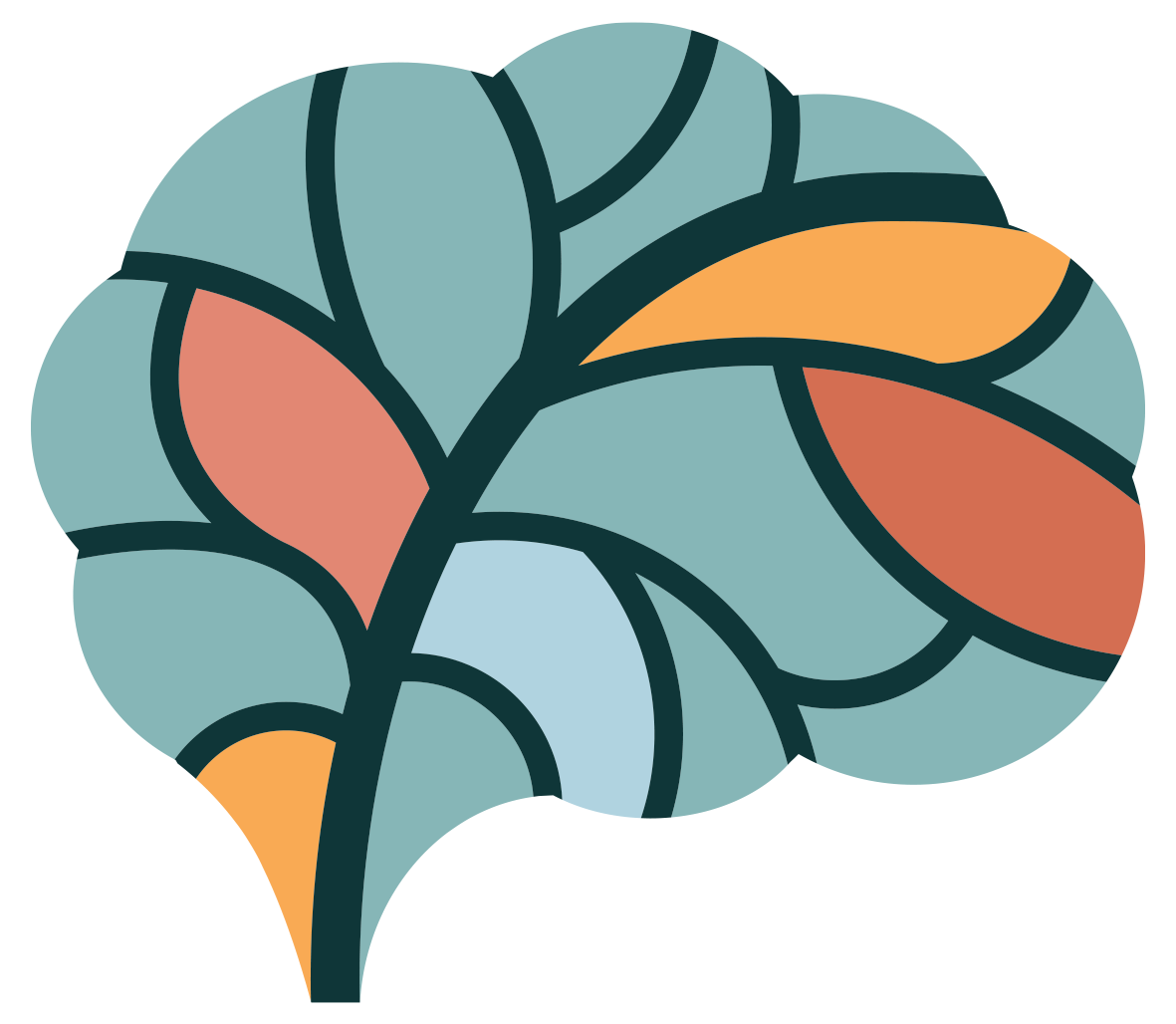Healing Your Inner Child Through Drama Therapy
Healing from the past begins with changing our story.
Unhealed trauma doesn’t always present itself through intense flashbacks or triggers.
It can also be expressed as:
- Experiencing deep fears of being abandoned
- Tolerating abusive behaviors from others
Feeling deep-rooted shame - Being unable to form healthy attachments
- Craving external validation at personal expense
This is because rejection, abandonment, and loss can amplify our nervous system’s protective response against perceived threats, which can lead survivors to avoid intimacy and connection (van der Kolk, 2014).
Traumatic triggers can shut down activity in Broca’s area of the brain, which is responsible for speech production; this can make untangling trauma through talk therapy very challenging (van der Kolk, 2014).
A trigger can continue to have the same effect on Broca’s area of the brain, even years after the trauma (van der Kolk, 2014).
This explains why we can often feel unable to put our experience of trauma into words.
Thankfully, there is a way for us to externalize our experience of trauma safely, without having to rely only on words.
Multiple studies and experts advocate for dramatherapy as a trauma-healing modality (Bleuer & Harnden, 2018; den Burger, 2011; Jones, 2015; Landy, 2010; van der kolk, 2014).
Through embodiment practices and externalizing tools, drama therapy has been shown to improve emotional regulation, strengthen positive self-concept, and increase our ability to meaningfully connect with those around us (Bleuer & Harnden, 2018).
For these reasons, Rewire Trauma Therapy has brought together experts in trauma treatment to create a self-paced Dramatherapy program.
Introducing Drama Therapy For Trauma: 10-Minute Techniques For Rewiring Trauma
Seven Practical Drama Therapy Techniques:

Technique 1: Playing with Role by Exploring Different Ways of Walking
Explore how the way you walk impacts the way you feel. This exercise uses movement techniques to integrate the mind and body. By bringing attention to the way we walk, we can increase our capacity to adapt to different situations.

Technique 2: Working With Boundaries
Bring awareness to how you physicalize the experience of setting boundaries—using the framework of drama therapy to explore anger and rage. Drama therapy allows us to externalize our experiences. It can provide us with the necessary perspective to create and maintain boundaries.

Technique 3: The Nervous System as an Animal
Using visualization, movement, and writing techniques, you will explore the nervous system. This exercise playfully invites you to imagine your fight/flight/freeze/connect responses as different animals, gaining insight into their strengths, gifts, and vulnerabilities.

Technique 4: Resourcing Using Ancestors Or Animals
You will be guided through a visualization, which encourages you to find supportive resources in alternative places to where you might usually look. You will use your imagination to connect with an image that emerges from your ancestral line or personal experience. The wisdom associated with this image will aid you as you navigate challenges.

Technique 5: Body Mapping
Create a space for exploration and deepen your relationship with your body, using the expressive arts of visualization, art-making, and physicalizing experiences. This exercise guides you through various grounding and sensory practices that invite an embodied and intentional dialogue with your body.

Technique 6: Clarifying
Gain insight into the challenges that you face in your life. Using drama therapy, learn to transform a problem into a resolution. This exercise enables us to cultivate clarity by implementing writing prompts and movement.

Technique 7: Managing Priorities Using Mapping
Make informed decisions based on your priorities. By creating a tangible map, using found objects to symbolize your priorities, you can gain insight and perspective. This mindset will equip you to identify and realize your priorities.
Three Expert-Led Modules:

Module 1: Introduction To Dramatherapy (23-min)
- Understanding Drama Therapy
- The roles of Drama Therapists
- The development of Drama Therapy
- How do Dramatherapists treat Trauma?

Module 2: Integrating Dramatherapy Tools (32-min)
- Exploring different Drama Therapy tools

Module 3: Dramatherapy Techniques And Exercises (26-min)
- How to find a Dramatherapist
- Exploring drama therapy techniques and exercises
Our Programs Come With:
-
A private supportive community
-
Lifetime access to the program and all future updates
-
Technical support via email and messenger
-
Start at any time at your own pace
-
A 72-hour money-back guarantee
-
A 30-day program exchange policy
Register Here for $160
You’ll get 3 expert-led modules, 7 drama therapy techniques, learning tools, plus bonuses you can immediately integrate into your trauma toolbox to help you work more effectively with the trauma-affected nervous system.
Meaningful Feedback
“One of the greatest things I have noticed is that Rewire Trauma Therapy responds to every comment, either on Facebook, Instagram or through their programs… this makes me feel seen and heard… creates a beautiful space to heal in.”
Carrie Butler, Survivor
"Thank you so much for creating and sharing such a helpful and inspiring program and for making it affordable as well."
Tracie Jones, Survivor
"Rewire was perfect for us. It allows us to use the program when we are able and has been a wonderful addition to our daily lives. We both struggle with anxiety and need to work through releasing trauma stored in our bodies."
Renee Boos, Survivor
"It helps me to feel the body and everything that happens in it, to slow down, and be focused. I found the tools of Rewire Therapy very practical and it suits me."
Milena Blankman, Survivor
"I would think if someone was new to therapy, these exercises would help calm their mind and body so they could be more vulnerable and become more conscious and aware of their thoughts and feelings. This is a great program and I hope people take advantage of it."
Matt Domyancic, Medically Retired Cop
"I notice that I am 'tolerating' more feelings and exploring them as being transient, also to see if they are information for the here and now or something else. The approach is so gentle that I forget the power of that. I am grateful and get that this is ongoing."
Liz Gow, Survivor
“The course was presented in a very fresh, interesting, and informative way. The panel was extremely caring, professional, and engaging. The theory, exercises, and bonus program exercises were a beautiful way to present such rich information.”
Rita Ehrman, Survivor
Register Here for $160
You’ll get 3 expert-led modules, 7 drama therapy techniques, learning tools, plus bonuses you can immediately integrate into your trauma toolbox to help you work more effectively with the trauma-affected nervous system.
Meet The Experts

Tanya Zajdel
RN, PSYCHIATRIC NURSE, FOUNDER OF REWIRE TRAUMA THERAPY
Tanya’s work with trauma healing and survivorship has been featured at the Tribeca Film Festival, CBC News, Vox Tablet and Iheart Radio.
Tanya is a mental health worker, a women’s health nurse, and a published feminist author. Tanya focuses primarily on creating programs that facilitate trauma healing through creating new neural connections in the brain called 'neuroplasticity exercises'.
Her techniques combine various proven therapies to repair and reset the nervous system after trauma including somatic therapy, yoga, drama therapy, dance therapy, CBT, qigong, EMDR, vagal toning, authentic movement, and a combination of expressive, creative art therapies.

Paula Kingwill
COUNSELLING PSYCHOLOGIST
Paula Kingwill graduated from the California Institute of Integral Studies in 2000 as a counseling psychologist specializing in Dramatherapy.
She has worked as a Drama Therapist in many contexts including clinics, NGO’ and schools, and Universities. She was a founding member and the director of The Bonfire Theatre Company until 2010.
She qualified as a Family Constellations Practitioner in 2017. She runs a cattle farm in the Karoo where she has an online drama therapy and supervision practice as well as running workshops and training both in-person and online.
Register Here for $160
You’ll get 3 expert-led modules, 7 drama therapy techniques, learning tools, plus bonuses you can immediately integrate into your trauma toolbox to help you work more effectively with the trauma-affected nervous system.
Frequently Asked Questions
How long do I get access to the program?
What is your refund policy?
Are the educators in this program licensed to guide me?
If I am not traumatized by any one experience but I’m looking to improve my overall mood and mental health, is this course still for me?
Can I use this course to support my loved one who struggles with mental health?
Is it better to combine various therapy techniques (as suggested in your program) to heal from my trauma, or is it better to stick with just one form of therapy?
Will I receive recognition of completion?
Do your programs contain only video content?
Can children participate in your programs?
Do you offer payment plans or scholarships?
Do you offer in-person sessions?
Register Here for $160
You’ll get 3 expert-led modules, 7 drama therapy techniques, learning tools, plus bonuses you can immediately integrate into your trauma toolbox to help you work more effectively with the trauma-affected nervous system.











